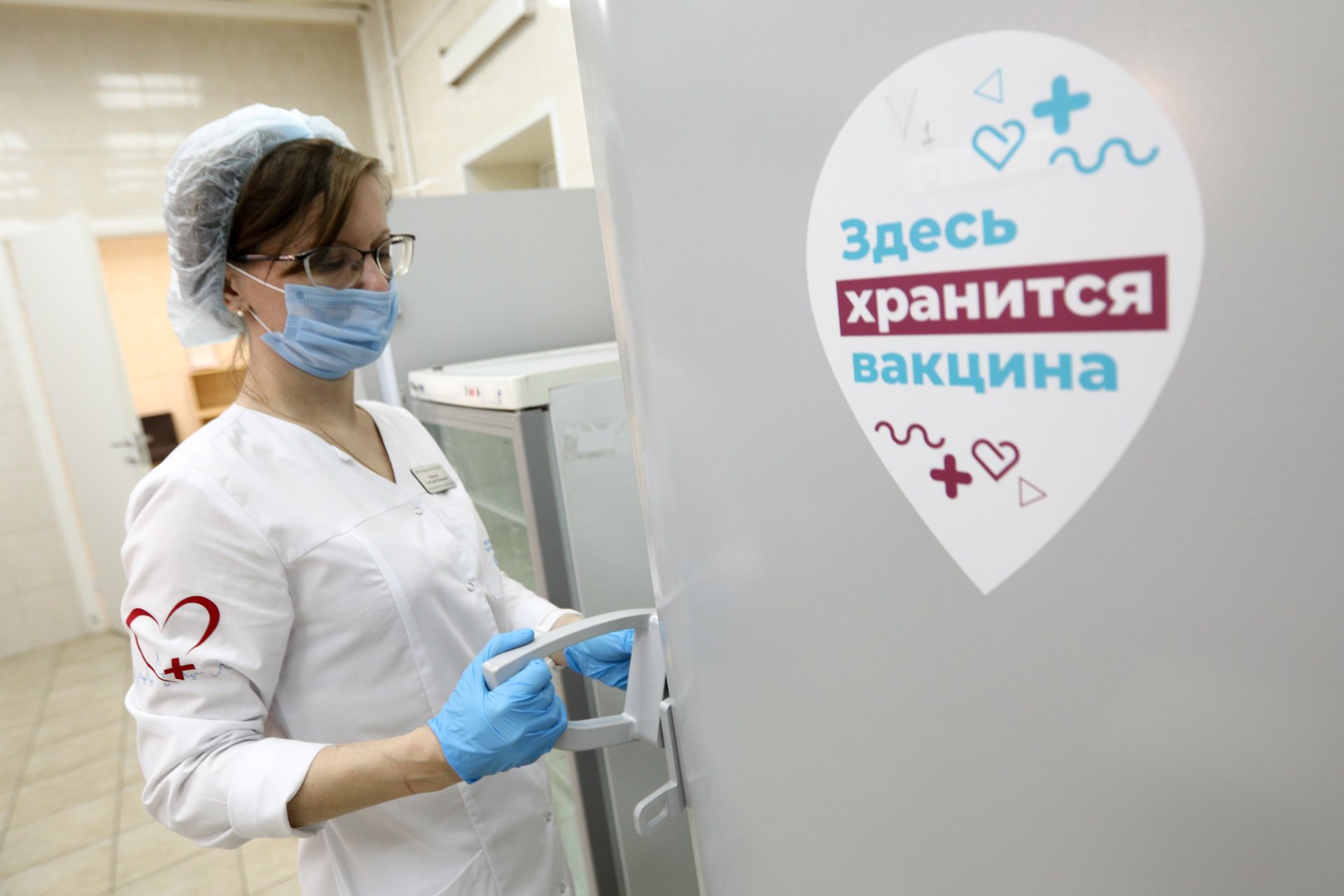In Russia, 31,252 new cases of coronavirus were detected over the past day, more than 16% of them had no clinical manifestations.
Also in the country, 24,564 people fully recovered, 688 patients died.
The largest number of new episodes was recorded in Moscow (8342), St. Petersburg (4078), Moscow region (2754) and Krasnodar region (715).
In all other subjects of the Russian Federation, the number of new cases did not exceed 600.
The total number of coronavirus cases registered in the country has reached 10,865,512. Since the start of the pandemic, 9,902,935 people have recovered in Russia, and 322,678 patients have died from complications.
According to Rospotrebnadzor, more than 247.2 million laboratory tests for the presence of the SARS-CoV-2 coronavirus have been carried out in the Russian Federation.
More than 980 thousand people remain under medical supervision.
Exactly one year ago, on January 18, 2021, mass vaccination against coronavirus infection began in Russia.
At that time, the Sputnik V vaccines were registered in the country from the National Research Center for Epidemiology and Microbiology named after N.F.
Gamaleya and "EpiVakKorona" State Research Center of Virology and Biotechnology "Vector".
Over the past 12 months, KoviVac (Chumakov Center), Epivaccorona-N (Vector), as well as Sputnik Light and the vaccine for adolescents from 12 to 17 years old Sputnik M (both - Gamaleya National Research Center for Epidemiology and Epidemiology).
As of January 14, more than 80 million people in the Russian Federation were vaccinated with at least one component of vaccines, more than 76 million people underwent a full vaccination cycle. The level of herd immunity is 63.7%.
At the end of December, Russian President Vladimir Putin said that the level of herd immunity to coronavirus in the country should reach 90%.
AGN "Moscow"
© Kirill Zykov
As noted by Olga Karpova, head of the Department of Virology at the Faculty of Biology, Moscow State University, Russia has effective vaccines against coronavirus infection.
In her opinion, the drugs Sputnik V and Sputnik Light have achieved the greatest success.
“The fact that domestic vaccines are effective and work is a success.
I would not call it luck, because underneath it lies a lot of work, a lot of experience and research.
I believe that we have vaccines that can give us herd immunity and solve our problems
.
In terms of effectiveness in the fight against coronavirus, nothing can compare with vaccination, ”she said in an interview with RT.
In turn, Professor of Virology, Chief Researcher of the Center.
Gamaleya Anatoly Altshtein noted that Russia lags behind a number of Western countries in terms of vaccination rates.
“During the year, we managed to vaccinate about 60% of the population.
This, of course, is not enough, because the duration of immunity was not long enough, it is necessary to do revaccination.
I am sure that the Russians will gradually lean towards the need to be vaccinated.
Agitation continues in this regard, explanations, so gradually people will be immunized, ”said the interlocutor of RT.
The vaccination campaign against COVID-19 has prevented many deaths, said Vladislav Zhemchugov, a specialist in especially dangerous infections, an immunologist, MD.
“I rate this year as positive, it saved a lot of lives, so the result is excellent,” TASS quoted him as saying.
On the eve of the Ministry of Health of the Russian Federation approved a list of contraindications for vaccination against COVID-19.
The corresponding order was signed by Minister Mikhail Murashko.
So, permanent contraindications included: hypersensitivity to the components of the drug, a history of severe allergic reactions, severe post-vaccination complications (anaphylactic shock, severe generalized allergic reactions, convulsive syndrome, body temperature above 40 ° C, hyperemia or edema at the injection site).
Temporary contraindications included: acute infectious diseases "occurring in moderate or severe moderate severity", non-infectious diseases, exacerbations of chronic diseases - for the period of an acute disease or exacerbation of a chronic disease and for two to four weeks after recovery or remission, as well as acute mild respiratory viral diseases, acute infectious diseases of the gastrointestinal tract - until the body temperature returns to normal.
In addition, the use of "EpiVakKorona", "EpiVakKorona-N" and "KoviVak" is contraindicated in malignant neoplasms.

